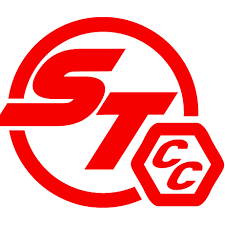Fernando Alonso has purchased a brand-new Aston Martin Valkyrie, paying the full price, as team owner Lawrence Stroll does not provide discounts to his drivers. This car has a base price of €3 million, and with personalised details, Alonso’s final cost will be even higher.
This marks the first time Alonso will drive a car designed by Adrian Newey, the renowned Formula 1 engineer responsible for numerous championship-winning designs. Alonso’s purchase coincides with rumours of Newey potentially joining Aston Martin F1, a move that could be confirmed soon. Regardless of the rumours, the Valkyrie is celebrated as one of the best road cars available.
The Aston Martin Valkyrie is a limited-edition hybrid hypercar developed through collaboration between Aston Martin and Red Bull Racing Advanced Technologies, along with partners like Cosworth, Rimac, Bosch, and Surface Transforms, among others. This unique vehicle was initially conceived to bridge the gap between track and road use, combining high-performance engineering with everyday usability. Adrian Newey and Miles Nurnberger were the primary figures behind the car’s design, initially codenamed AM-RB 001, representing the partnership between Aston Martin (AM) and Red Bull Racing (RB).
In 2017, the car was officially named the Valkyrie, continuing Aston Martin’s tradition of using Norse mythology for high-performance models. A pre-production version showcased its aerodynamic design, featuring a dynamic underfloor that utilises the Bernoulli and Venturi effects to maximise downforce. The wheels and roof vents were also designed to enhance airflow and reduce weight, adding to its track-ready performance.
Inside, the Valkyrie offers a futuristic design, replacing traditional dials with multiple screens displaying the car’s performance metrics, side-camera mirrors, and other controls. The steering wheel itself serves as a digital instrument panel, with convenient controls for adjustments while driving. The car’s seats are custom-fitted using 3D scanning technology to ensure a snug fit for each owner, similar to Formula 1 seating arrangements.
The Valkyrie comes with two-door configurations: Gull-wing doors for the coupe version and Butterfly doors for the convertible spider variant. Its powerful engine, a 6.5-litre naturally aspirated V12 developed by Cosworth, produces about 1,000 hp at 10,500 RPM, with a rev limit of 11,100 RPM. This engine is paired with a 7-speed gearbox from Ricardo, which features an automated manual transmission system for smoother shifts.
In addition to the petrol engine, the Valkyrie includes a hybrid electric system similar to KERS technology used in Formula 1, developed by Integral Powertrain Ltd and Rimac. This system provides an additional 160 hp, bringing the car’s total power output to 1,160 hp. Weighing only 1,030 kg due to its carbon fibre body, the car boasts an impressive power-to-weight ratio, accelerating from 0 to 100 km/h in just 2.6 seconds.
Michelin Sport Cup 2 tyres ensure high grip, with lightweight magnesium alloy wheels that measure 20 inches at the front and 21 inches at the rear. These F1-inspired wheels include central nuts to reduce weight further.
Fernando Alonso’s new Aston Martin Valkyrie is an extraordinary machine for both track and road, with a price tag ranging from €3 to €4 million. Even more extreme versions exist, such as the Valkyrie AMR Pro, built for the racetrack. Aston Martin also plans to introduce a racing version of the Valkyrie to compete in prestigious series such as the FIA World Endurance Championship and the IMSA Sportscar Championship.
Alonso’s Valkyrie combines Formula 1 innovation with cutting-edge automotive technology, including components from Surface Transforms, to create a hypercar designed for both performance and everyday driving.
Surface Transforms plc (LON:SCE) is a manufacturer of next-generation carbon-ceramic brake discs for automotive and aircraft applications and has been certified to IS9001-2000 since 2008 and was certified to TS16949 automotive quality accreditation and AS9100C aerospace quality accreditation in 2015.

